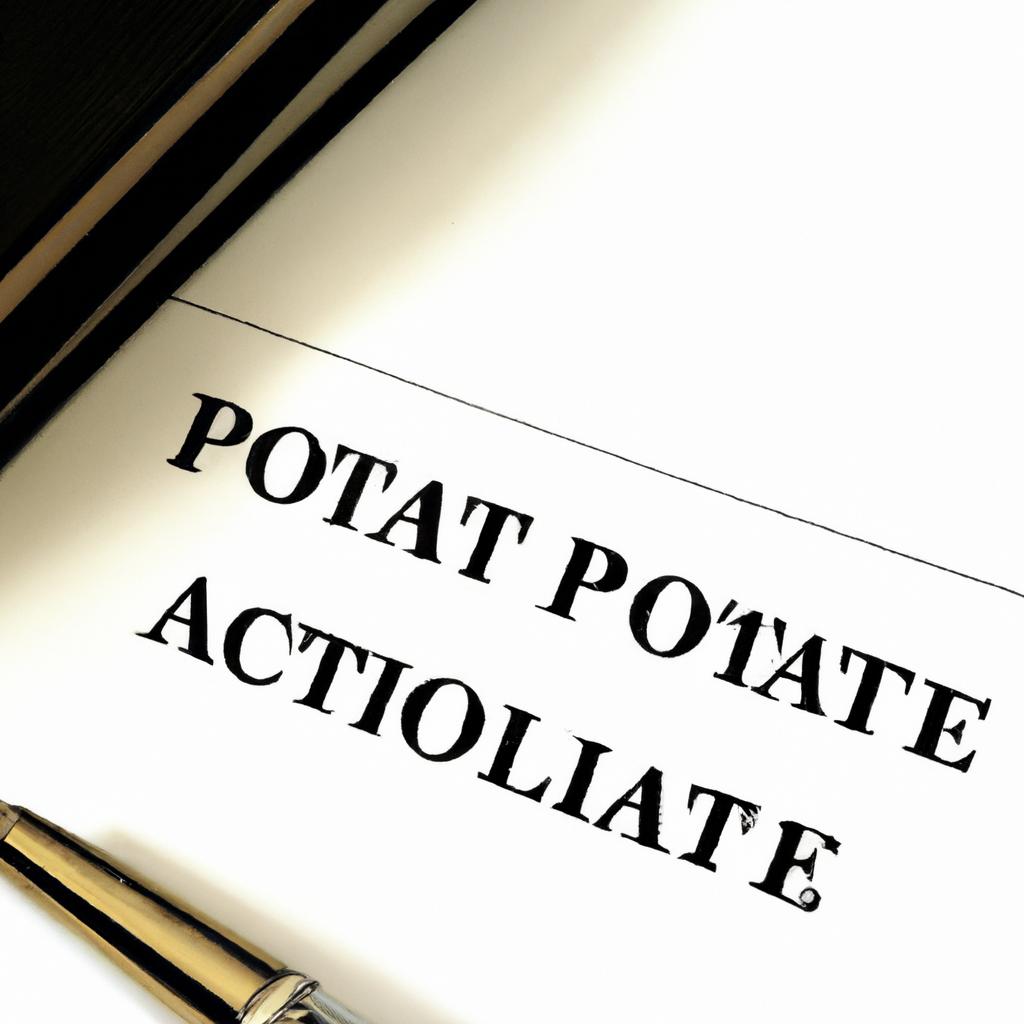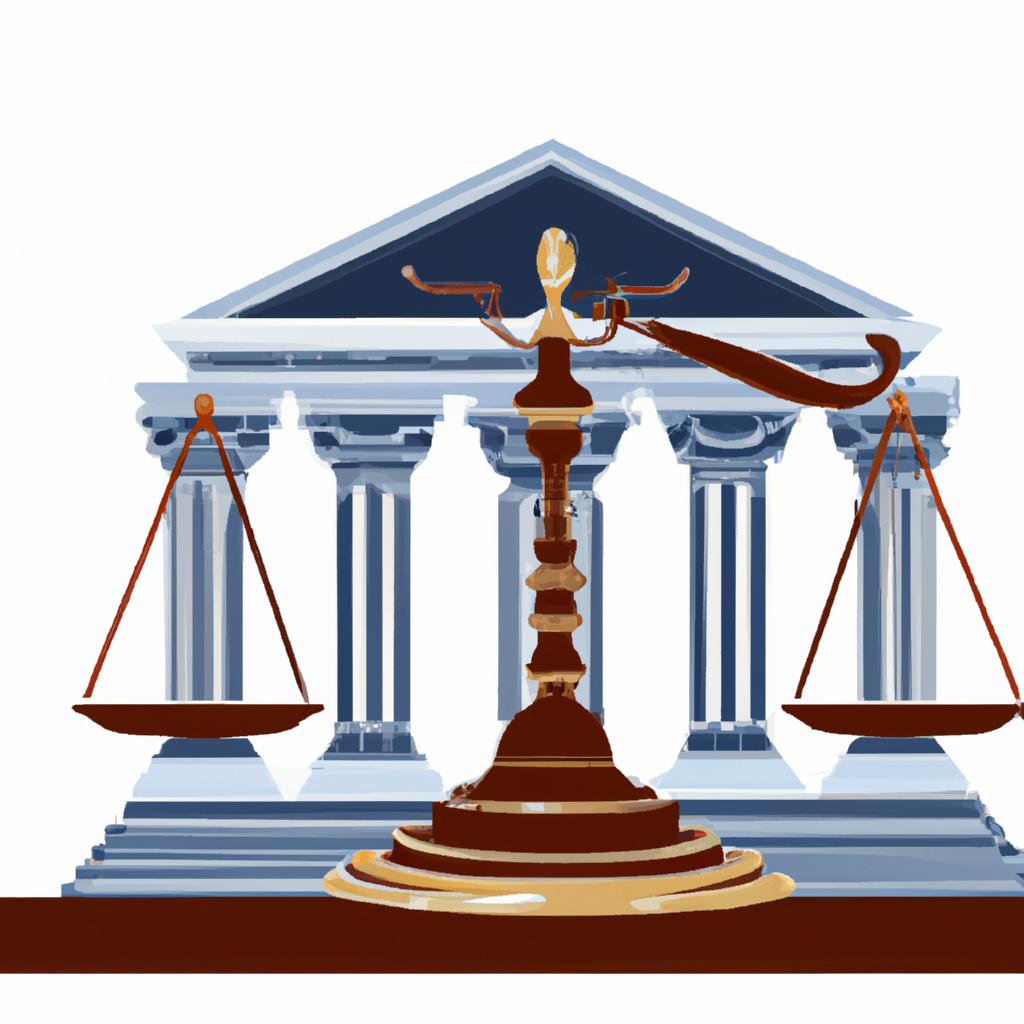In the intricate web of estate administration, one key question looms large: Who ultimately decides if probate is needed? As seasoned practitioners in the field of estate planning, probate, elder law, Wills, and trusts, the Morgan Legal Group in New York City navigates this thorny issue with precision and expertise. Join us as we unravel the mysteries surrounding probate and shed light on the individuals tasked with making this critical determination.
Determining the necessity of probate in estate administration
is a crucial step in the legal process following the passing of an individual. Probate is the court-supervised procedure that validates a deceased person’s will and ensures their assets are distributed according to their wishes. Whether or not probate is required depends on various factors that need to be carefully evaluated by legal professionals.
One of the key factors in determining the necessity of probate is the type and value of the assets left behind by the deceased individual. Assets held in a trust or with designated beneficiaries typically do not go through probate, while assets solely owned by the deceased may require probate. Additionally, the laws of the state where the deceased resided at the time of their death play a significant role in whether or not probate is necessary. Consulting with an experienced attorney who specializes in estate planning and probate can help clarify the requirements and guide individuals through the process seamlessly.
Key factors influencing the need for probate
When determining the need for probate, several key factors come into play. One such factor is the presence of a valid Will. If the deceased individual left behind a legally binding Will detailing how their assets should be distributed, probate may be necessary to ensure that the wishes of the deceased are carried out.
Another significant factor influencing the need for probate is the value of the deceased individual’s estate. In general, if the value of the estate exceeds a certain threshold set by state law, probate will likely be required. Additionally, the type of assets owned by the deceased, such as real estate or financial accounts held solely in their name, can also impact whether probate is necessary. Consulting with an experienced probate attorney can help navigate the complex factors that determine if probate is needed.

Understanding the role of state laws in probate decisions
In the realm of probate decisions, the role of state laws is paramount in determining the necessity and execution of probate proceedings. Each state has its own set of laws governing probate, which can significantly impact the distribution of assets and resolution of estate matters. Understanding these laws is crucial in navigating the complexities of probate processes.
When determining if probate is needed, various factors come into play, including the nature and value of the assets left behind, the presence of a valid will, and the state laws governing probate. State laws dictate the threshold for probate requirements, outlining when the court intervention is necessary to settle an individual’s estate. It is essential to familiarize oneself with the specific probate laws in the state where the deceased resided to ensure compliance and efficient administration of the estate. At Morgan Legal Group, our experienced attorneys can guide you through the intricacies of state probate laws and provide comprehensive legal counsel for all your estate planning needs.
| Asset Type | Probate Requirement |
|---|---|
| Real Estate | Yes |
| Bank Accounts | Depending on amount |
| Vehicles | Depending on ownership |
| Investments | Depending on named beneficiaries |
Ultimately, the decision on whether probate is needed rests on a careful analysis of state laws, the nature of the estate, and the presence of a valid will. By enlisting the expertise of legal professionals well-versed in probate matters, you can navigate the intricate landscape of estate administration with confidence and ease. Let Morgan Legal Group be your trusted partner in securing your estate’s future. experienced estate planning attorneys for personalized guidance”>
experienced estate planning attorneys for personalized guidance”>
Consulting with experienced estate planning attorneys for personalized guidance
In determining whether probate is needed, several factors come into play. One of the primary considerations is the type and value of assets left behind by the deceased individual. Assets that are held solely in the decedent’s name are typically subject to probate, while assets held jointly or with designated beneficiaries may bypass the probate process. Another factor to consider is the presence of a valid Will. If the deceased individual has a Will in place, the probate court will likely need to oversee the distribution of assets according to the terms outlined in the Will.
Consulting with experienced estate planning attorneys can provide you with personalized guidance on whether probate is necessary in your specific situation. A skilled attorney can review your assets, assess your estate plan, and provide recommendations on how to avoid or minimize the probate process. By seeking legal advice, you can ensure that your loved ones are protected and that your assets are distributed according to your wishes. Don’t hesitate to reach out to our team at Morgan Legal Group for expert advice on probate and estate planning matters.
| Assets | Probate Required |
| Jointly held assets | No |
| Assets with designated beneficiaries | No |
| Assets solely in decedent’s name | Yes |
Q&A
Q: Who decides if probate is needed?
A: Probate is typically determined by the laws of the state in which the deceased person resided at the time of their death.
Q: What factors determine if probate is necessary?
A: The size and complexity of the deceased person’s estate, as well as the presence of a valid will, are important factors in determining whether probate is necessary.
Q: Who is responsible for initiating the probate process?
A: The executor named in the deceased person’s will, or an interested party such as a family member, can initiate the probate process by filing the necessary paperwork with the court.
Q: What happens if probate is not required?
A: If the deceased person’s assets are held jointly with a spouse or designated beneficiary, or if the total value of the estate falls below a certain threshold set by state law, probate may not be necessary.
Q: Can probate be avoided altogether?
A: In some cases, assets can be transferred outside of probate through mechanisms such as living trusts, joint ownership, or beneficiary designations on accounts or insurance policies. Consulting with a qualified estate planning attorney can help determine the best course of action.
In Summary
In conclusion, the decision of whether probate is needed ultimately falls to the legal system and the specific laws of each state. It is important to seek advice from a qualified estate planning attorney to determine the best course of action for your individual situation. By understanding the intricacies of probate and estate administration, you can ensure that your loved ones are protected and your assets are distributed according to your wishes. Remember, knowledge is power when it comes to navigating the complex world of estate planning. Thank you for reading!
 Who decides if probate is needed? This is a question that may arise when a loved one passes away, and their estate must be settled. Probate is the legal process of distributing a deceased person’s assets to their beneficiaries and paying any outstanding debts. The probate court oversees this process to ensure it is done correctly and fairly. However, not all estates go through probate, and it ultimately depends on various factors to determine if it is needed. In this article, we will explore who makes this decision and what factors play a role in it.
Who decides if probate is needed? This is a question that may arise when a loved one passes away, and their estate must be settled. Probate is the legal process of distributing a deceased person’s assets to their beneficiaries and paying any outstanding debts. The probate court oversees this process to ensure it is done correctly and fairly. However, not all estates go through probate, and it ultimately depends on various factors to determine if it is needed. In this article, we will explore who makes this decision and what factors play a role in it.
When a person passes away, their estate (all their assets, property, and debts) is left behind. An estate plan, which includes a will and other legal documents, helps guide the distribution of these assets according to the deceased’s wishes. However, if a person dies without a valid will in place, the state’s laws of intestacy govern how their estate is distributed. In both cases, the estate will first go through the probate process before distribution can occur.
Now, let’s answer the question, who decides if probate is needed? The answer is – the executor or personal representative of the deceased’s estate. The executor is typically named in the deceased’s will and is responsible for managing and settling the estate. If there is no will, the court will appoint a personal representative, usually a family member or close friend, to fulfill this role.
Once the executor or personal representative takes on their duties, they must determine if probate is necessary. They do this by evaluating the estate’s assets and debts, following state laws, and consulting with an attorney when needed. It is essential to note that some assets may bypass probate and go directly to the beneficiaries. These include jointly held assets, assets with designated beneficiaries, and assets held in a trust.
The process of determining if probate is needed involves several key factors. Let’s take a closer look at each of them.
1. The size of the estate
The value of the deceased’s assets plays a significant role in whether probate is required. Each state has its own laws regarding this, known as “small estate” laws. If the estate is under this threshold, it may be eligible for a simplified probate process or may not require probate at all. Generally, small estates range from $100,000 to $150,000 in total value.
2. The type of assets
As mentioned earlier, some assets may bypass probate and go directly to the beneficiaries. These assets include life insurance policies, retirement accounts, and jointly held property. If the estate consists mainly of these types of assets, probate may not be necessary.
3. The state’s laws
Each state has its own set of probate laws, and they vary significantly. Some states have simplified processes for small estates or provide procedures to avoid probate altogether. Therefore, it is crucial to understand the laws in the state where the deceased resided and owned property.
4. Outstanding debts
Before an estate can be distributed, all outstanding debts must be paid. If the deceased has significant debts that far exceed the value of their assets, probate may not be necessary. In this case, creditors may settle the debts outside of the probate process.
5. Disputes among beneficiaries
If there is a dispute among beneficiaries or challenges to the validity of the will, probate may become necessary. The court may need to step in to resolve these issues, making probate a necessary step in the estate settlement process.
What are the benefits of avoiding probate?
Probate can be a lengthy and expensive process, consuming both time and money. It can also become a public record, which may not be desirable for some families. By avoiding probate, the deceased’s beneficiaries can receive their inheritance more quickly and with fewer legal fees.
However, it is essential to note that probate serves a valuable purpose. It ensures that the estate is correctly distributed according to the deceased’s wishes and provides a legal mechanism to resolve disputes among beneficiaries. Probate also protects the estate from fraudulent claims and improper distributions.
In conclusion, the executor or personal representative of the deceased’s estate ultimately decides if probate is needed. They must carefully evaluate the estate’s assets, debts, and state laws to make this determination. By understanding the factors that come into play, individuals can take steps to minimize the need for probate or create an estate plan that can simplify the process for their loved ones.
If you find yourself in a situation where you are the executor or personal representative of an estate, it is crucial to consult with an attorney experienced in probate law. They can guide you through the process and help you determine the best course of action for settling the estate. By being well-informed and prepared, you can ensure that the estate settlement process goes as smoothly as possible for all involved parties.






